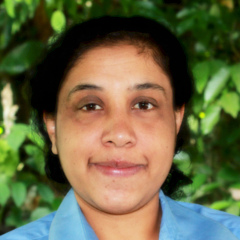ABC of Civil Services | Preparation vital for success in UPSC personality test too

Mail This Article
The civil service examination is a three-stage selection process to pick up the most suitable candidates for a job of general administration. Unlike the university examinations where one burns the midnight oil in the last week, a candidate needs to work steadily for months to crack civil service test. But rather than just mugging for hours, one needs to digest and apply the information to ensure success. When it comes to the personality test too, preparation is important.
Earlier, one needs to read the toppers' interviews to get an idea about the type of questions being asked in the civil service interview. But today with WhatsApp groups, one gets regular updates on questions. Most of the candidates share their interview questions in the group. People start posting the possible questions on various happenings too before the actual personality test. Coaching institutes often conduct the analysis sessions of Detailed Application Form which will be submitted to the UPSC. These sessions include generating questions on one’s educational background, achievements and hobbies.

Certain people are more interested in the prediction game. In the civil service interview, there will be around seven interview boards simultaneously interviewing the candidates and each board chairperson is a member of UPSC. So, people start collecting information on the background of each member of UPSC trying to guess the questions a particular member may ask. Some candidates are worried about the possible tricky situations about which they have read.

“What if the board members speak in Hindi?” was an anxious question from an aspirant from Tamil Nadu during a session. I told him that such a situation will not arise as his choice of medium for interview is English. His next query was “What if they speak in Hindi among themselves?” I had to control the urge to laugh at this and somehow managed to convince him that it does not matter whatever happens between members as his job is to give replies only to questions put to him. This person was taking the whole thing a bit too serious as I heard that he was visiting tribal hamlets before the personality test to get first-hand information on his optional subject Anthropology!
If anyone need to do well in a process which involves questions and answers, it is important that one should be familiar with the nature of questions. Browsing through previous questions is therefore mandatory. But unlike a written examination, the questions in the personality test do not get repeated exactly. It is generated on the spot based on the reactions of the candidate. A word in the application form could trigger something in the mind of an interviewer. (For example, the interview board asked about Cape of Good Hope to a candidate coming from Kerala with travelling as a hobby. The words Kerala and travel might have triggered a memory of Vasco da Gama coming to Kerala through Cape of Good Hope in the interviewer.) So, the whole idea in checking previous questions should be to understand the possibilities of questions. Instead of that if one writes down answers to all those questions and start memorising them, the whole purposive conversation will reduce to a viva voce and the candidate will lose marks.

The only biodata that matters during a personality test is that of the candidate. Since the candidate will be randomly allotted to a board, it is a sheer waste of time to dig into the profile of a board chairperson. It does not matter whether the chairperson is a bureaucrat, professor or armed force person. As there are four other members in the board who can ask a variety of questions, it is better that the candidate brush up one’s background as well as things of general interest rather than worry about the chairperson. Concentrating on the things which one can improve should be the focal point of every aspirant. So, stop worrying about the things beyond one’s control and focus on oneself for better result.



